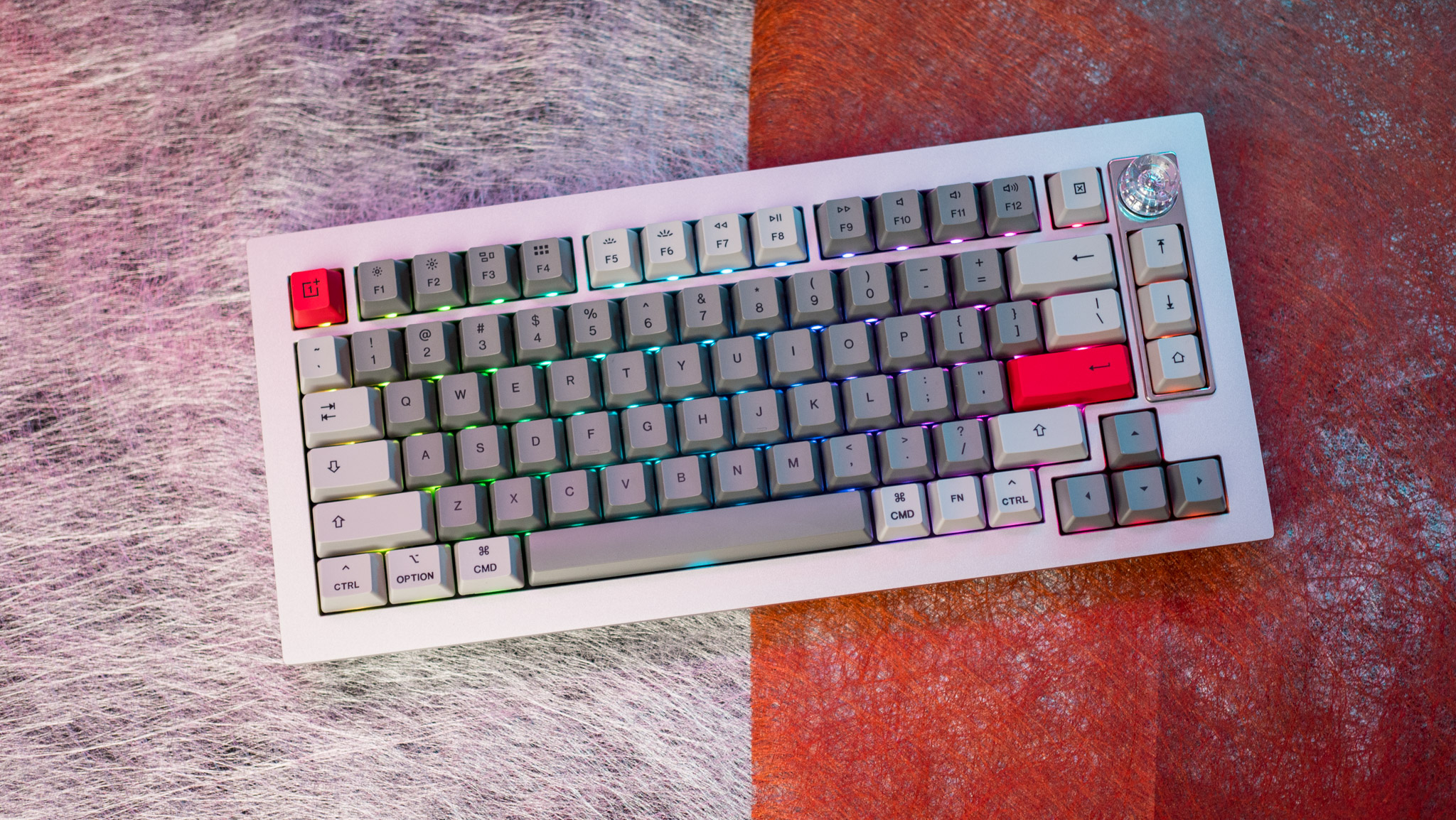Android Central Verdict
The Keyboard 81 Pro is among the best custom mechanical keyboards available today. It uses a gasket-mounted design that delivers excellent feedback, and the sandblasted aluminum chassis is built to last. You get a distinctive design with plenty of chrome accents and a clear rotary knob that makes increasing the volume an occasion in itself. There's also Bluetooth connectivity, the ability to change out switches with relative ease, and a kickstand that lets you adjust the angle. Sure, you're paying more than the Q1 Pro — the keyboard it is based on — but the custom design makes up for it.
Pros
- +
Exquisite typing experience thanks to gasket-mounted design
- +
Sturdy aluminum chassis
- +
Distinctive design with plenty of unique features
- +
Hot-swappable switches
- +
Bluetooth connectivity
Cons
- -
Keycaps don't feel great
- -
Costlier than the keyboard it is based on
Why you can trust Android Central
When OnePlus announced it was introducing a keyboard earlier this year, I was very excited — more so than usual. You see, I just started delving into the mechanical keyboard rabbit hole, and realized early on that there's a lot more to the category than I initially imagined. While I used mechanical keyboards for the better part of a decade, they were largely limited to gaming-focused options like the Corsair K95, Corsair K100, and so on.
So when I got started with my first DIY keyboard — a Glorious GMMK Pro — it was a revelation. The gasket-mounted design delivered much better feedback and bounciness, and there was a whole world of enthusiast switches and keycaps waiting to be explored. A year on and a dozen keyboards and several dozen switches later, it feels like I finally know my way around the category.
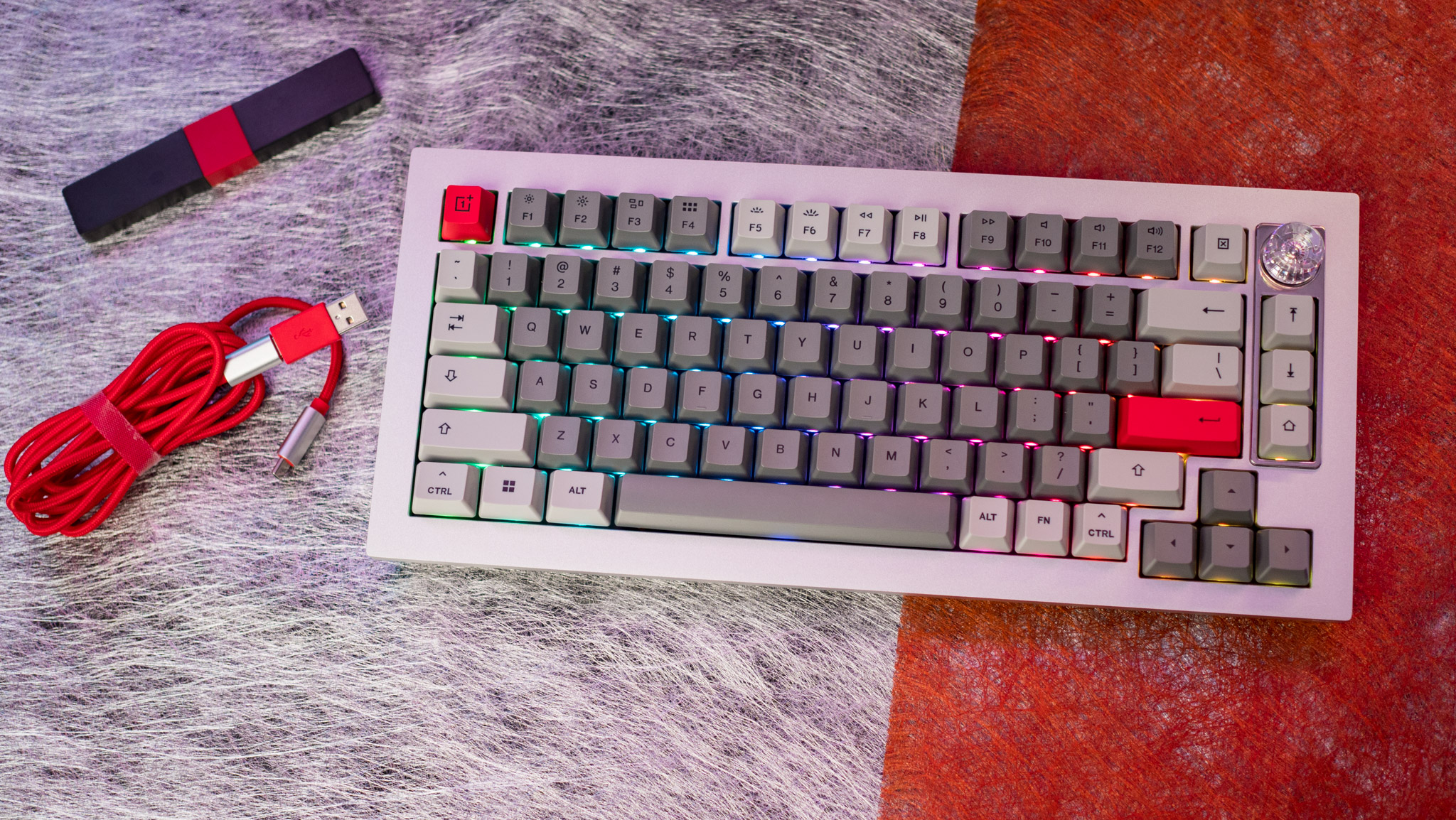
That's why I was enthused about the OnePlus Keyboard 81 Pro. At the outset, it doesn't make much sense for the Chinese manufacturer to launch a keyboard; the product just doesn't fit into its overarching ecosystem strategy that now includes the likes of the OnePlus Band, OnePlus Watch, OnePlus Pad, and the OnePlus TV 65 Q2. However, the keyboard isn't a part of OnePlus's core product line, but its community-driven initiative, which sees greater collaboration with its userbase to solicit new product ideas and design feedback.
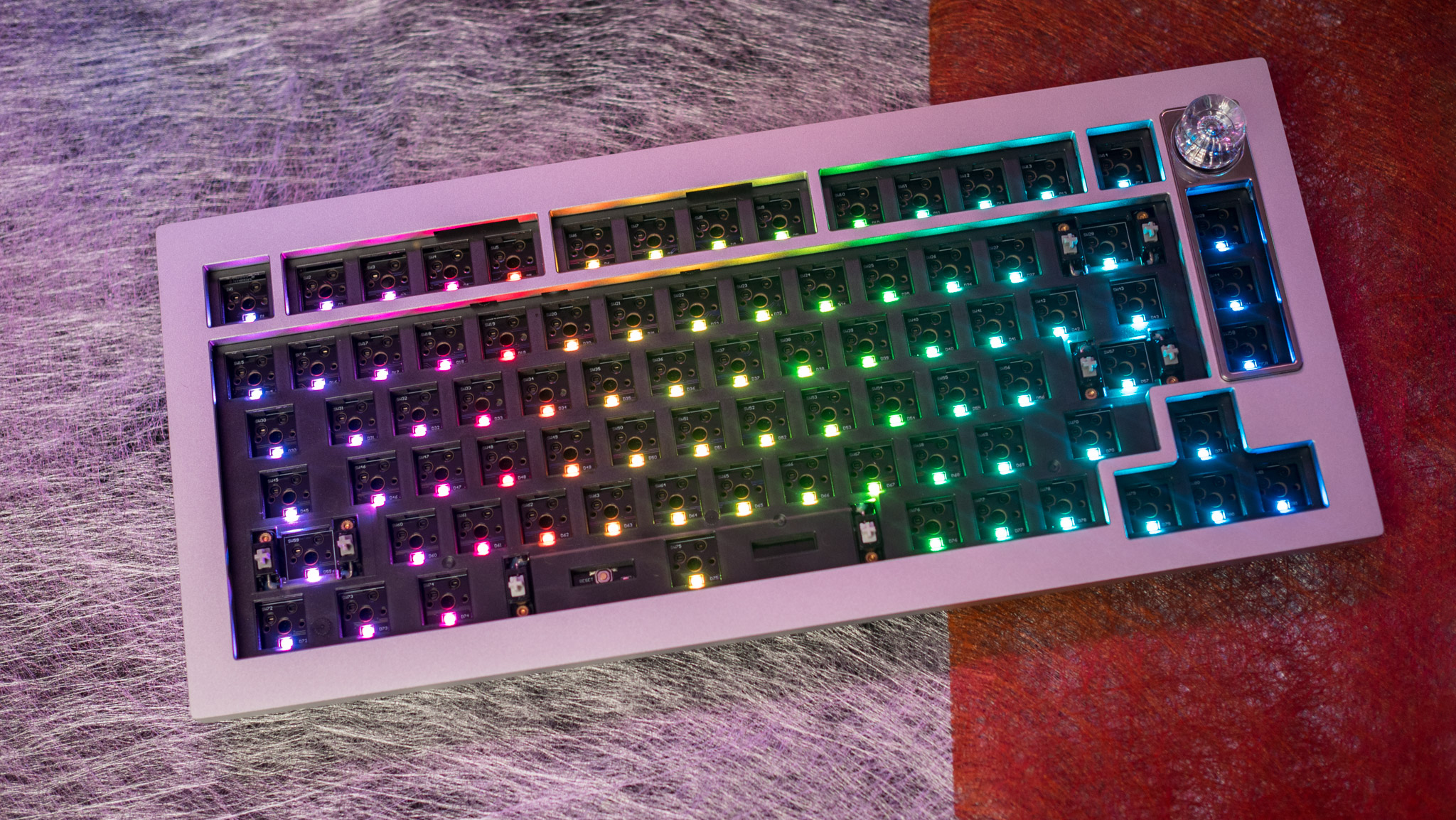
That's the origin story of this keyboard; it was designed hand-in-hand with the community, and built by Keychron. In fact, the keyboard uses the same foundation as the Keychron Q1 Pro, utilizing the same gasket mount, same polycarbonate plate, similar case foam, and the same ARM Cortex-M4 controller.
If you haven't paid attention to this category, Keychron is one of the largest mechanical keyboard manufacturer, and the brand prides itself on value. The $199 Q1 Pro offers a similar feature-set as keyboards that cost thrice as much, and having used it for several months, it's still my go-to recommendation for anyone looking to make the switch to a custom mechanical keyboard.
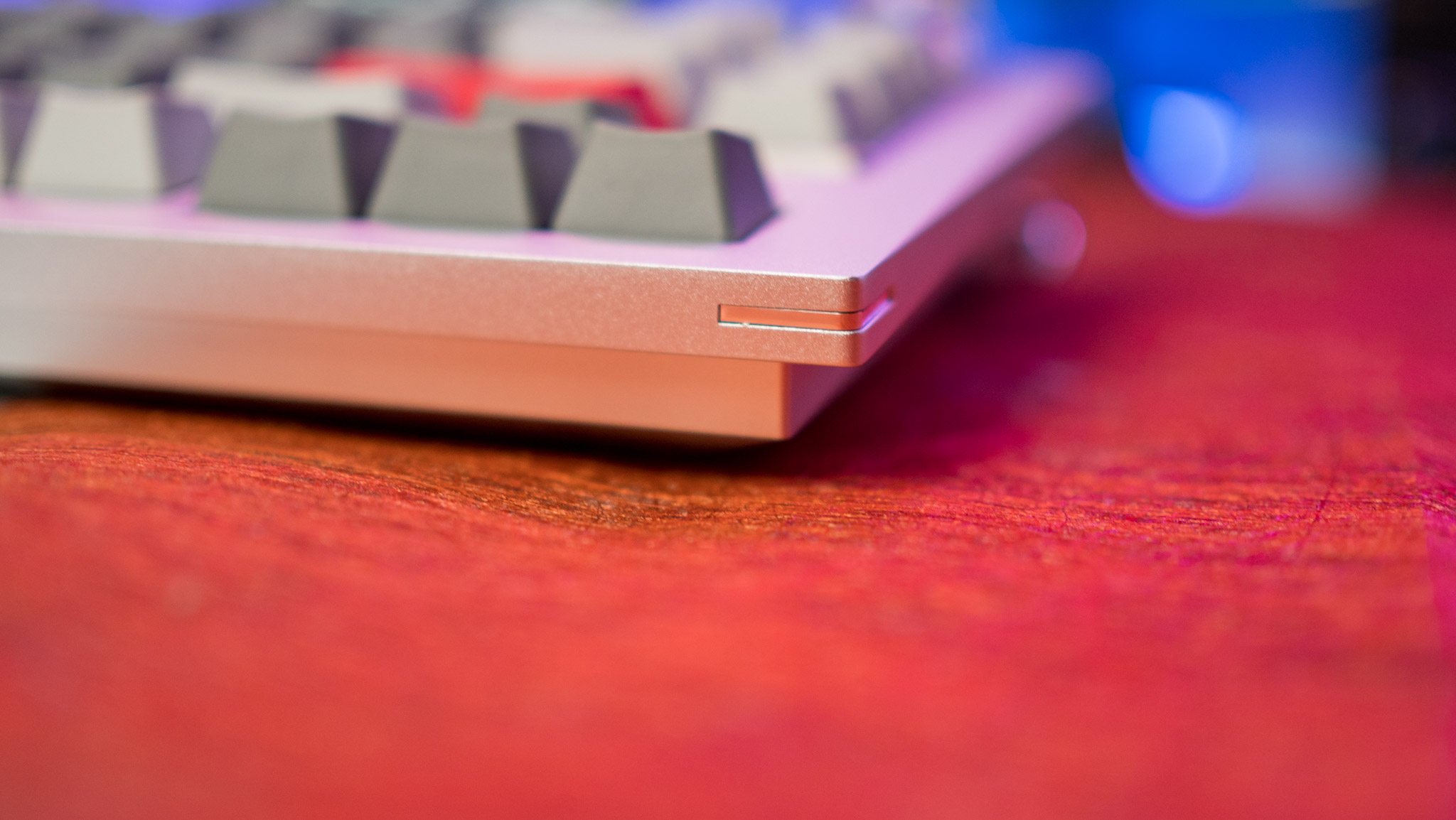
So, the Keyboard 81 Pro has what is arguably the best foundation in this category, and its differentiating characteristic is the exquisite design. The chassis is made out of sandblaster aluminum, and it looks and feels like a flagship product.
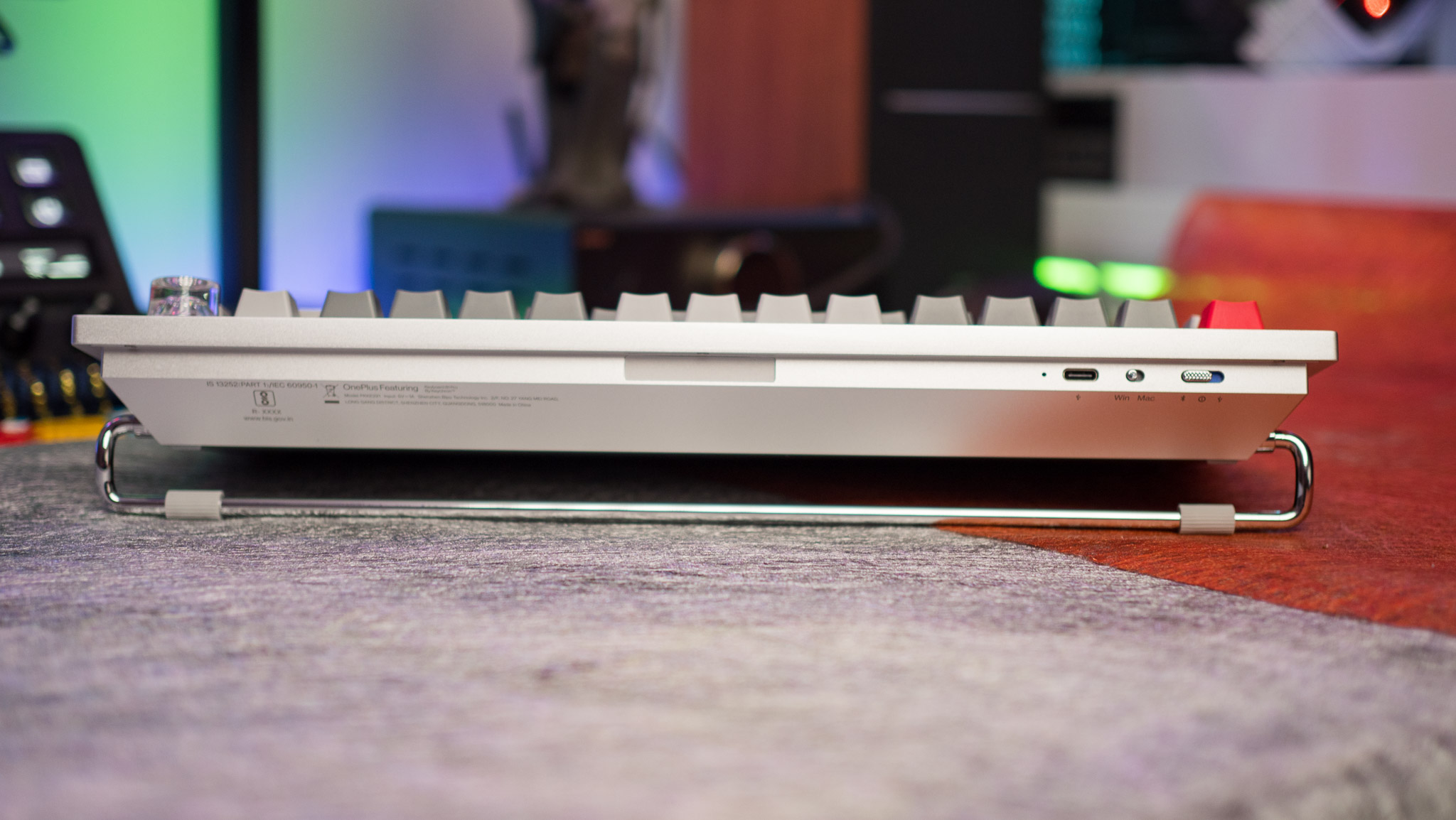
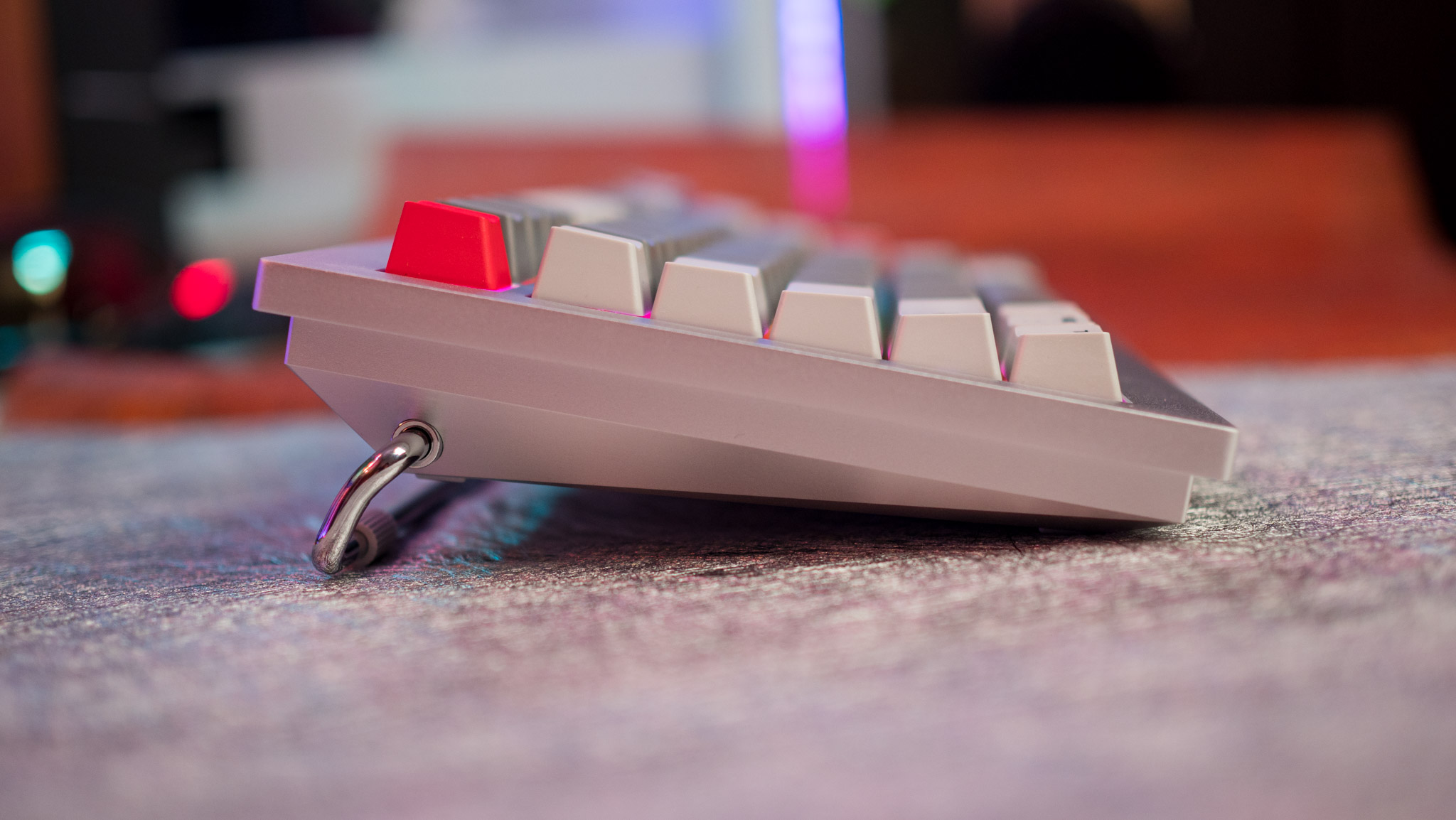
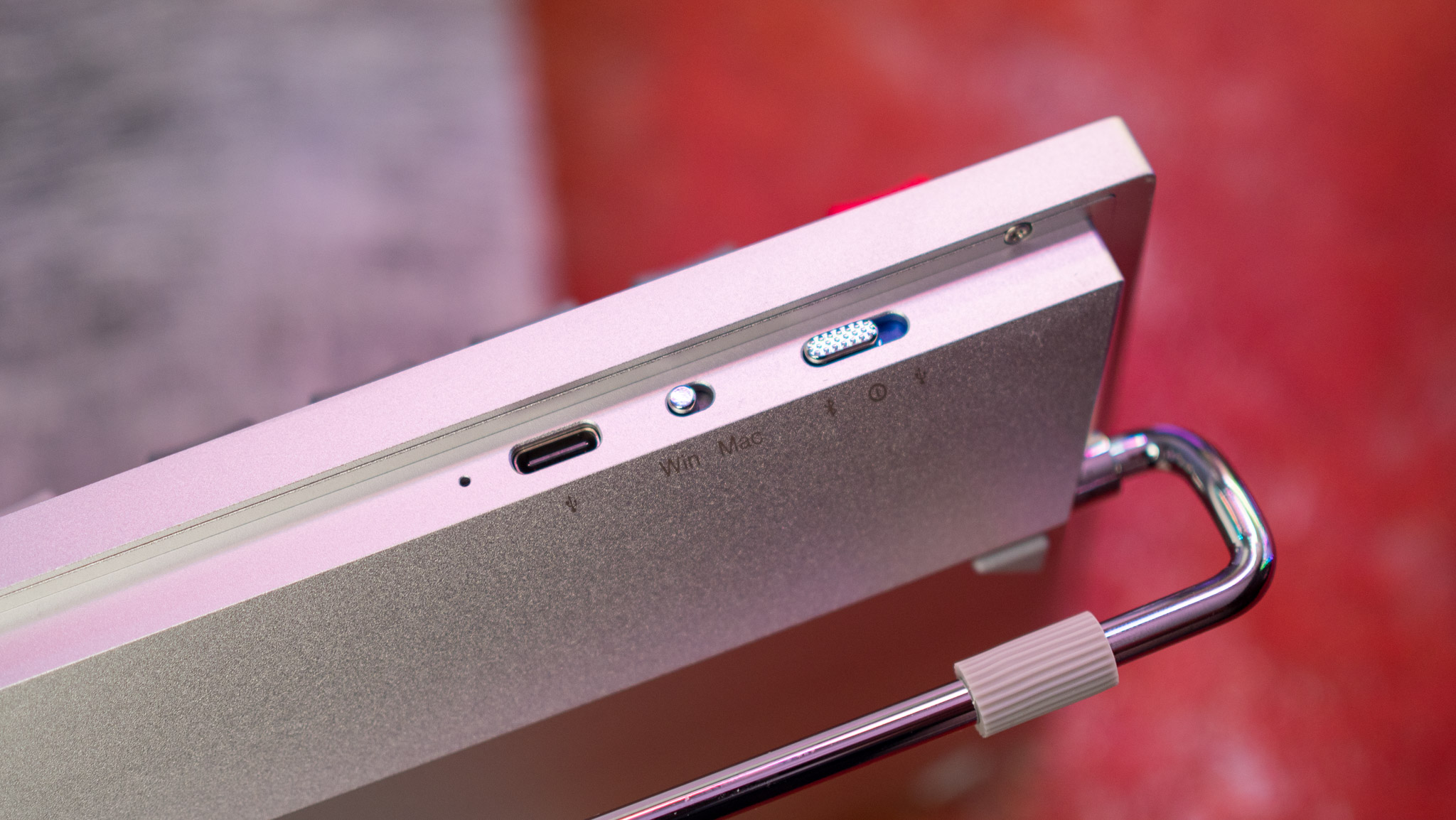
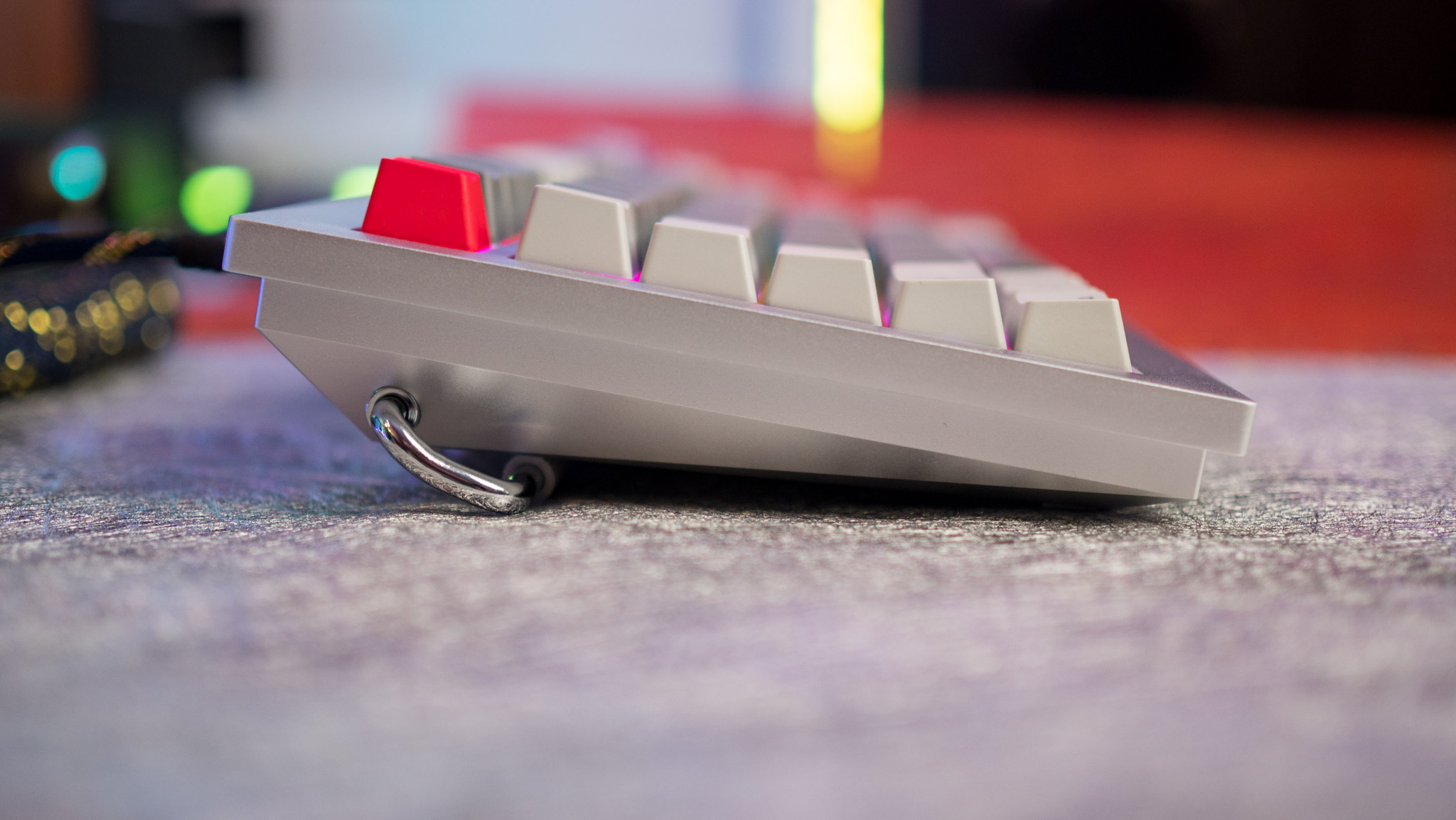
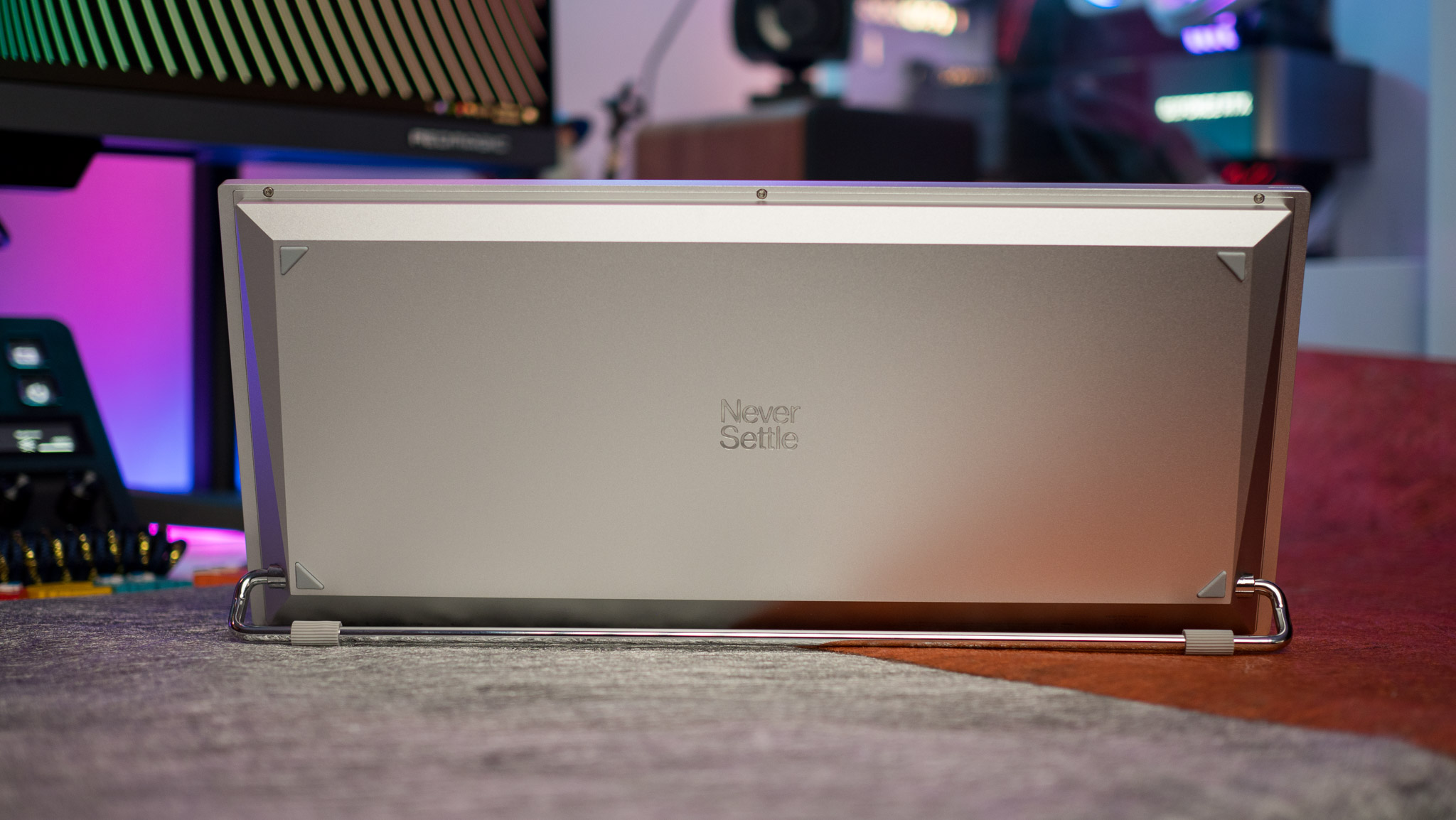
Another unique design trait is the kickstand — a bar that runs the length of the keyboard that allows you to prop it up on a surface or adjust the typing angle. For me, this is what distinguishes the Keyboard 81 Pro from the Q1 Pro, and in my use, the kickstand has proven to be quite handy.
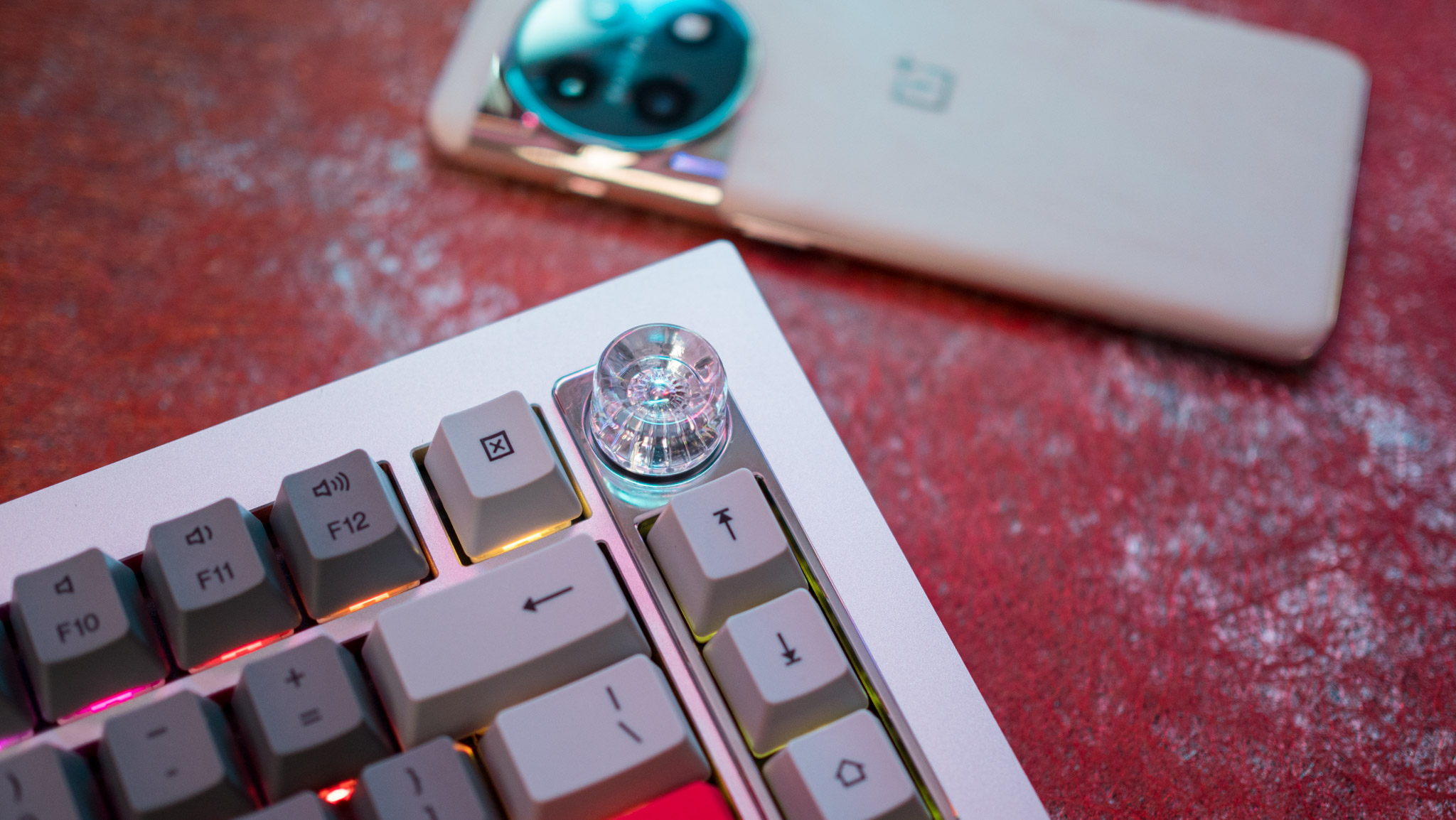
The other big change is the see-through rotary knob, which looks undeniably cool. While it has the same feedback as the Q1 Pro, I would have preferred a standard encoder with a textured design as that's more usable. Regardless, it adds a lot of flair to the design, and the chrome accents around the knob and nav keys is also quite distinctive.
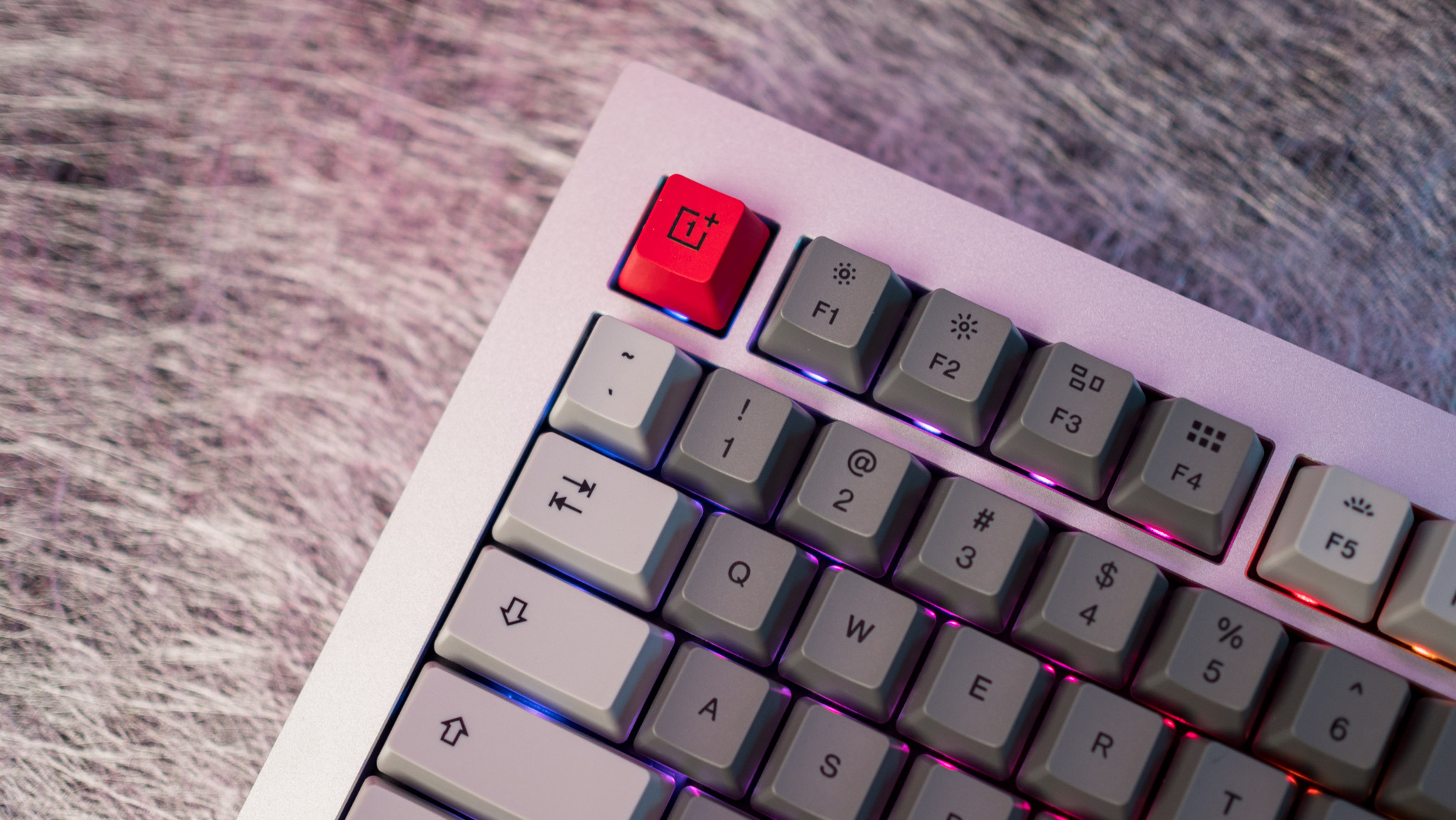

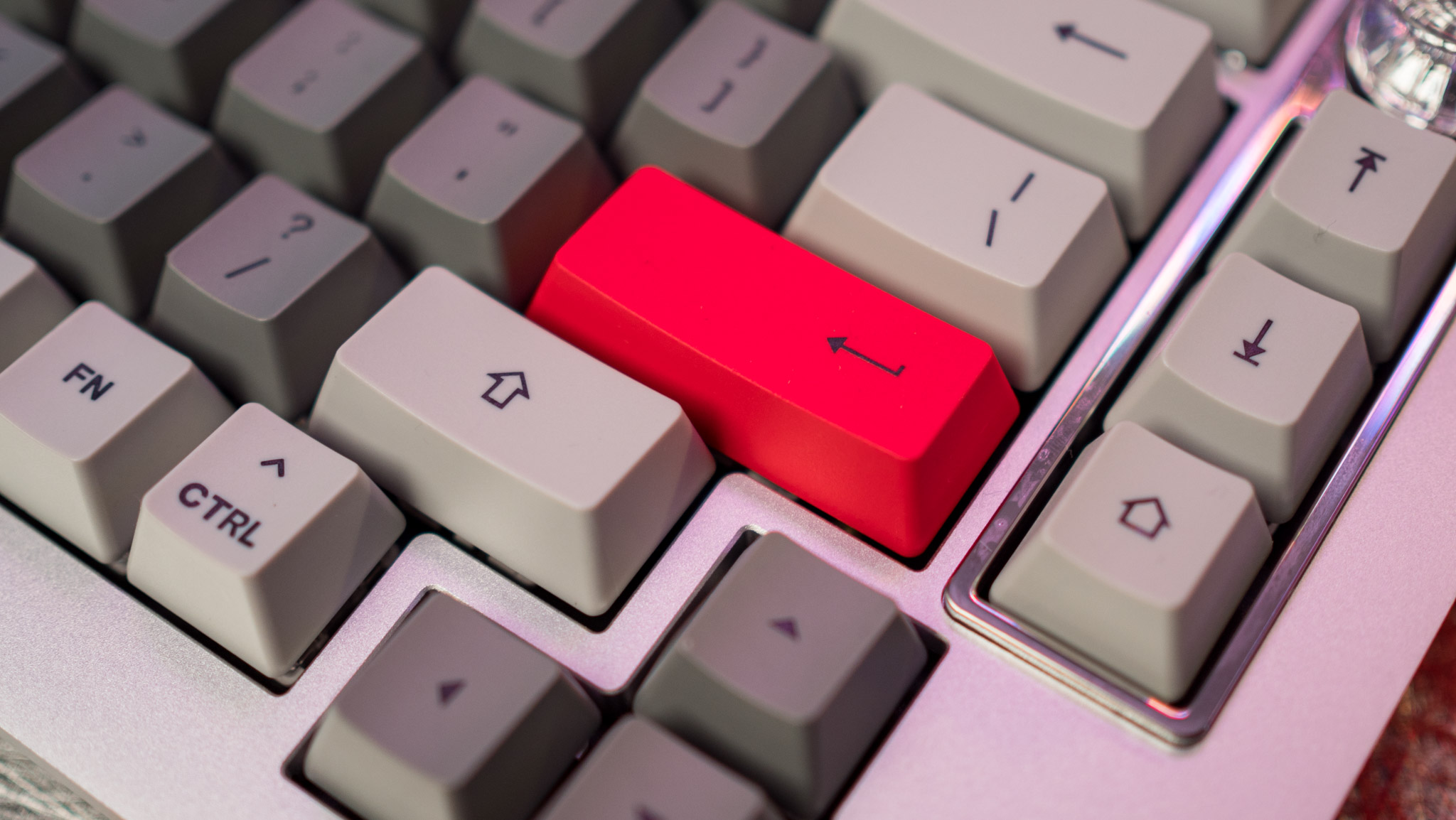
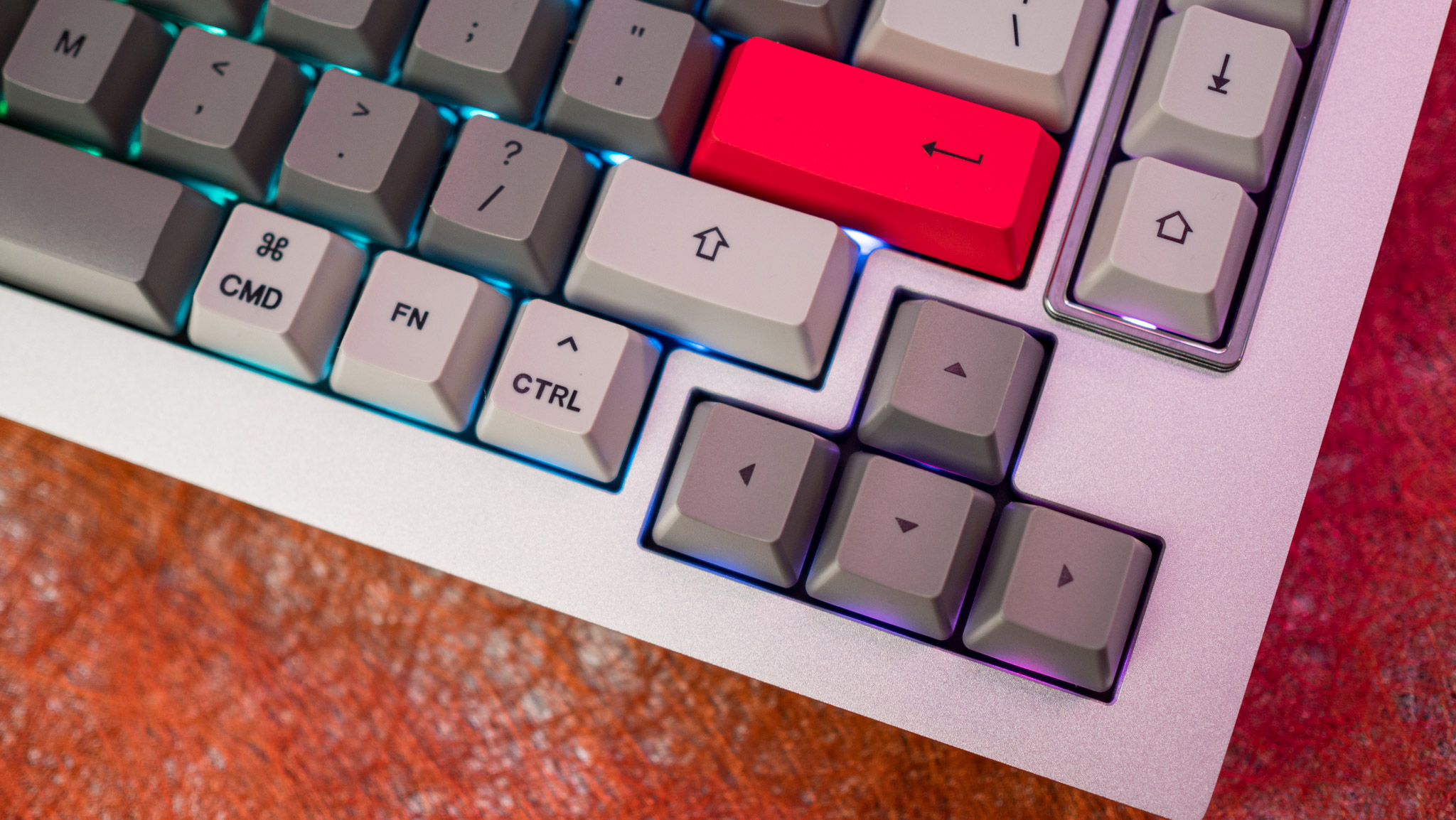
Other than that, the Keyboard 81 Pro feels the same to use as the Q1 Pro. It uses the same 75% layout, so you get 81 keys in total. But what you'll truly appreciate is the typing experience; it uses a double-gasket design with the keyboard housing sandwiched by gaskets so it doesn't come into direct contact with the metal chassis of the keyboard. This creates a distinct flex that's noticeable when using the keyboard, and the Keyboard 81 Pro also has additional layers of foam to reduce sound resonance and increase feedback.
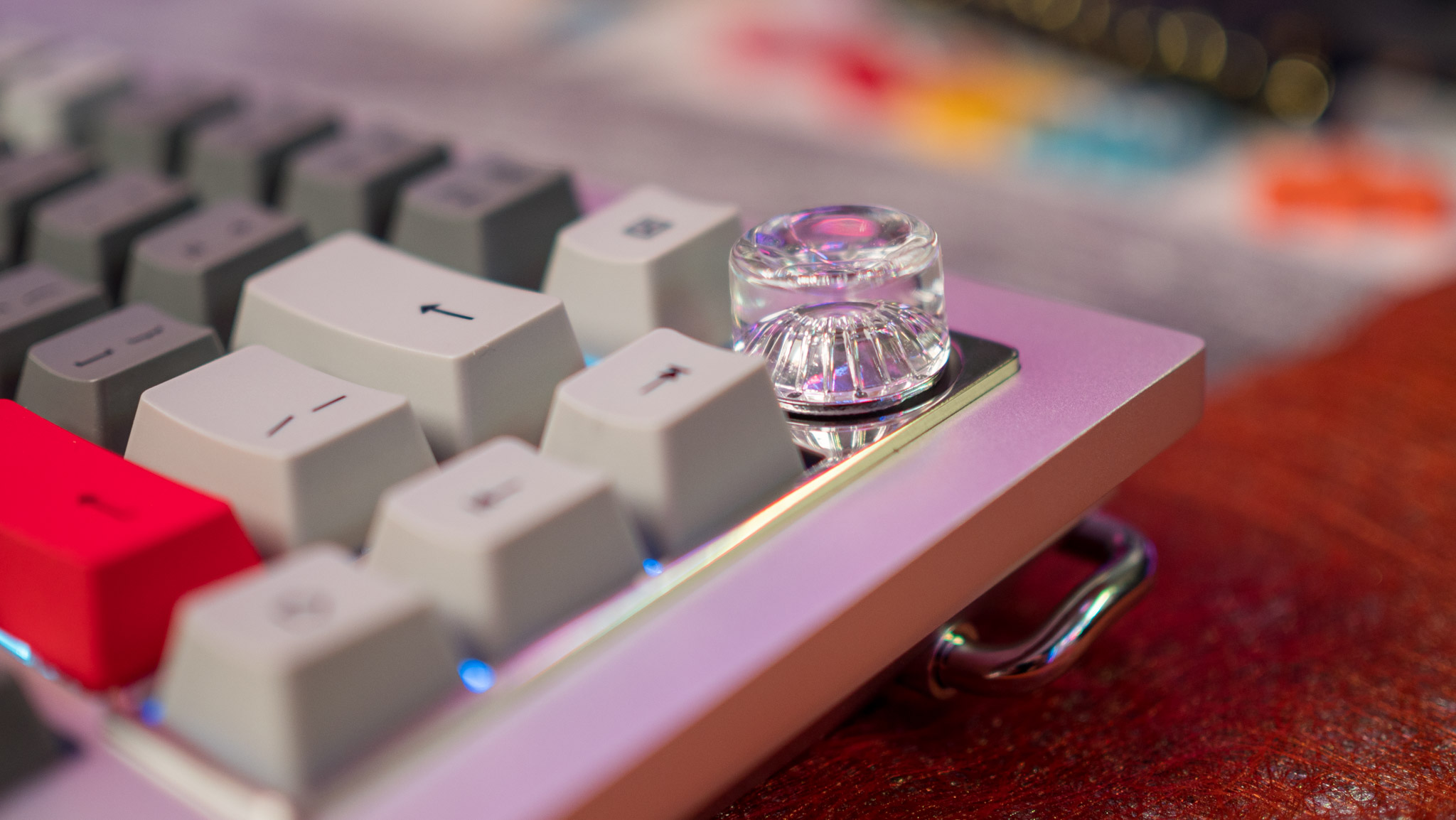
All of this leads to a keyboard that is phenomenal to use. If you've been using a traditional membrane keyboard or even a mechanical keyboard, you will immediately notice a difference when switching to a gasket-mounted option. Although the Keyboard 81 Pro felt a little stiffer than the Q1 Pro during the initial two days of use, it got much better with extended use.
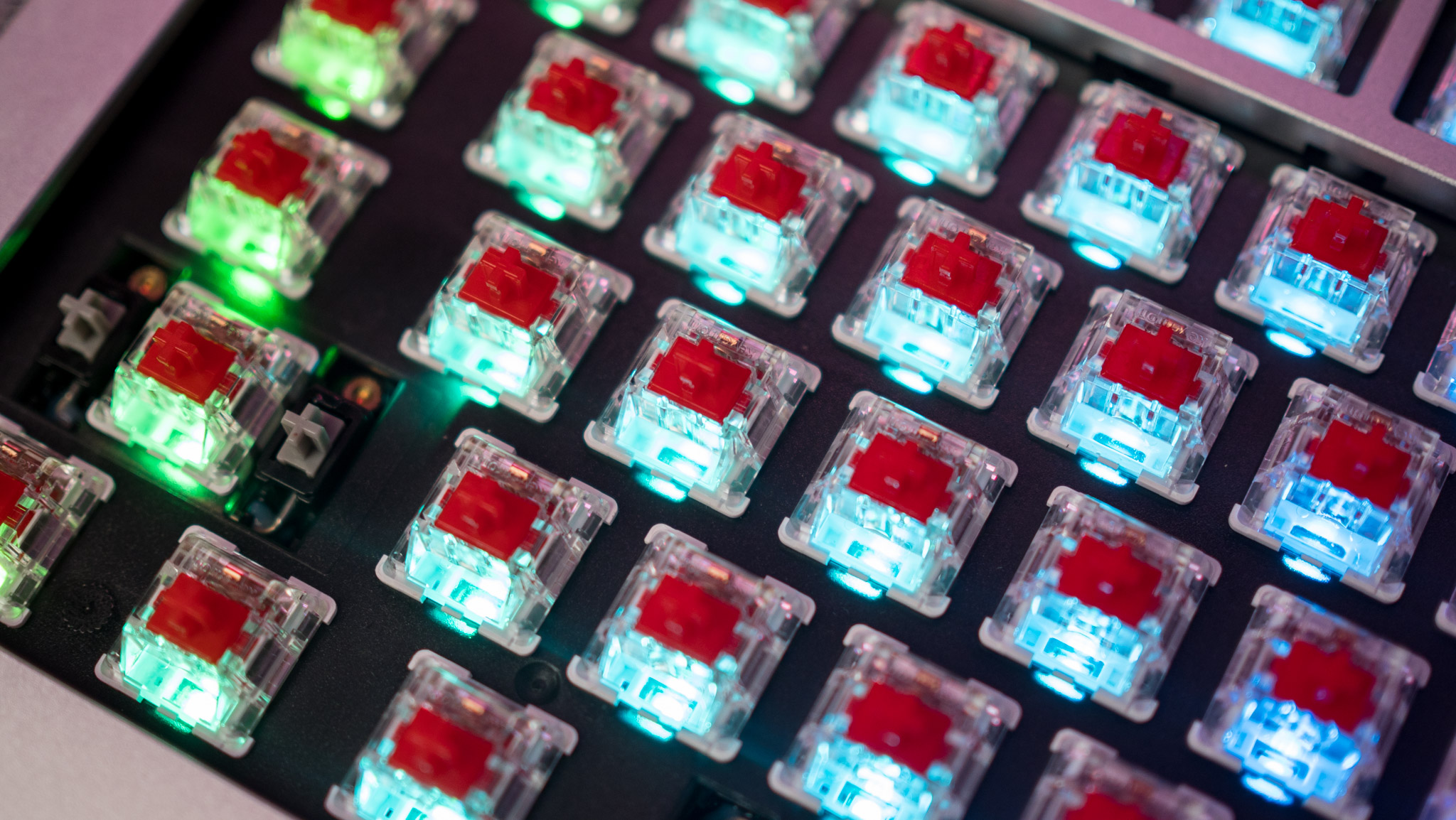
The Keyboard 81 Pro has hot-swappable switches, so you can take out the switches and add your own. You can choose between a linear and tactile switch, with OnePlus bundling Keychron's K Pro switches. The K Pro Red linear option has 2mm pre-travel and 4mm total travel, with an actuation of 45gf. It is a decent switch in its own right, but I prefer heavier Gateron switches, so I installed those on the keyboard after a few days of use.

You get a decent amount of accessories in the box as well; OnePlus bundles a keycap and switch puller, and there's a red USB-C to USB-C cable that serves as a homage to the manufacturer's phone cables. The keyboard comes fully assembled out of the box, so you can just plug it in to get started.

The only issue I have with the keyboard is the keycaps. The Q1 Pro uses Keychron's KSA profile keys that are more conducive to typing, and the Keyboard 81 Pro instead uses cylindrical keycaps. Now, the keycaps are made out of double-shot PBT and are built to last, but the quality doesn't quite feel the same as that of the Q1 Pro. The legends don't shine through either, so you'll only get diffused RGB lighting.
Talking about RGB lighting, you can customize the lighting, assign macros, change key configuration, and so much more with VIA, the keyboard software that's used across the industry. It's incredibly easy to use, and the best part is that it's online, so there's no need to install any drivers.

There's plenty of versatility here as well, with the Keyboard 81 Pro offering Bluetooth connectivity in addition to a USB-C port. There's an alert slider-style toggle that lets you switch modes, and it's straightforward to do so.
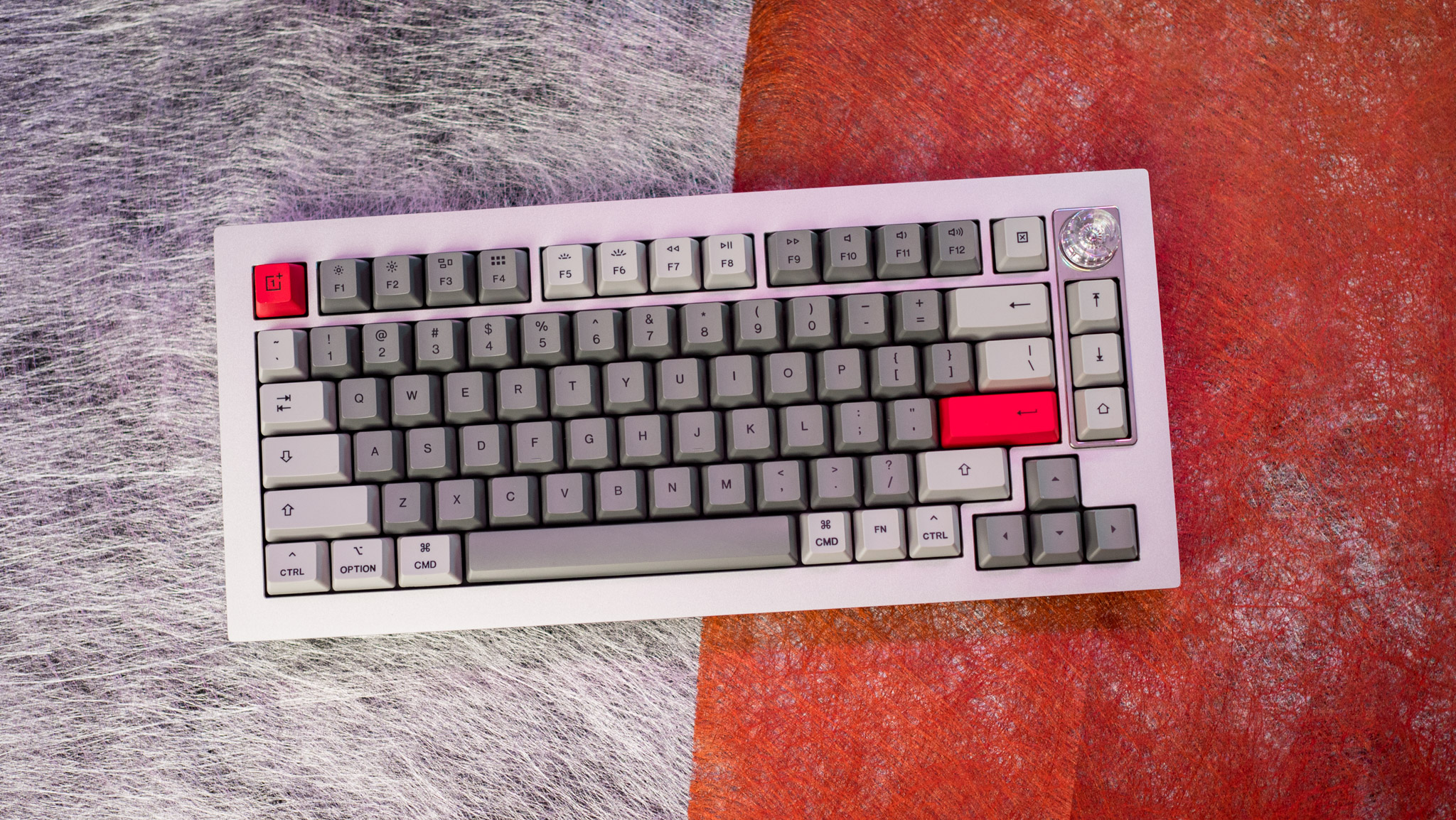
Overall, OnePlus is onto a winner with the Keyboard 81 Pro. It retains the same fundamentals as the Q1 Pro while offering unique extras that give it a distinct edge, and it is fabulous in daily use. You're paying a premium for those additional features, with the Keyboard 81 Pro retailing for $239 — $40 more than what you'll end up paying for the Q1 Pro. The keyboard makes a lot more sense in regions like India, where the Q1 Pro isn't on sale just yet.
Sure, you're not necessarily getting the best value, but if you want a new mechanical keyboard and want something with distinctive styling, the Keyboard 81 Pro may just be the ideal choice for you.
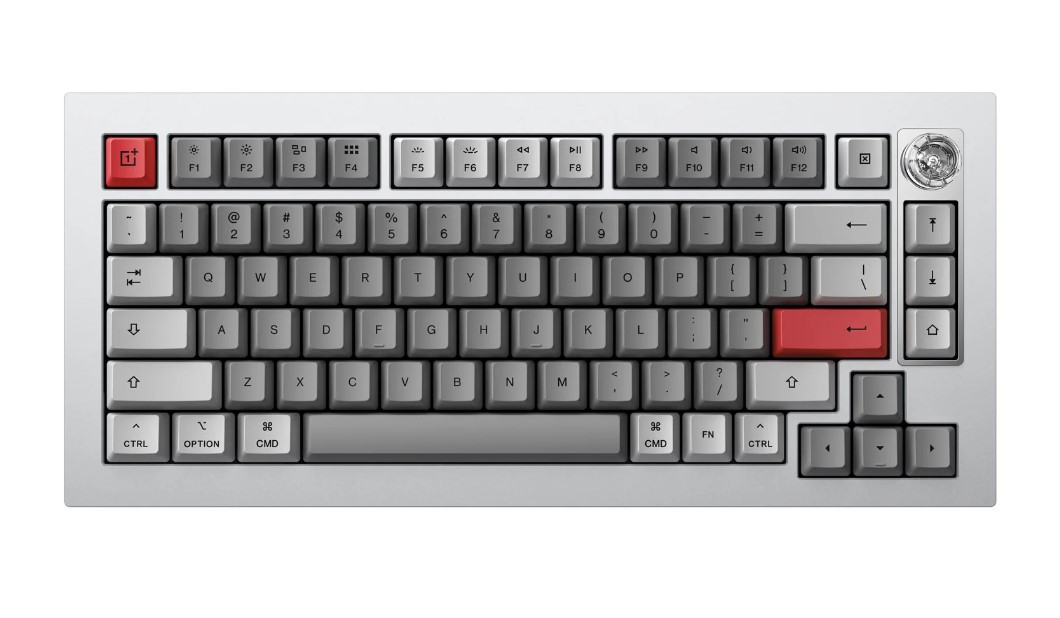
With a gorgeous design and phenomenal typing experience, the OnePlus Keyboard 81 Pro has everything you could ask for in a custom mechanical keyboard.

Harish Jonnalagadda is Android Central's Senior Editor overseeing mobile coverage. In his current role, he leads the site's coverage of Chinese phone brands, networking products, and AV gear. He has been testing phones for over a decade, and has extensive experience in mobile hardware and the global semiconductor industry. Contact him on Twitter at @chunkynerd.
